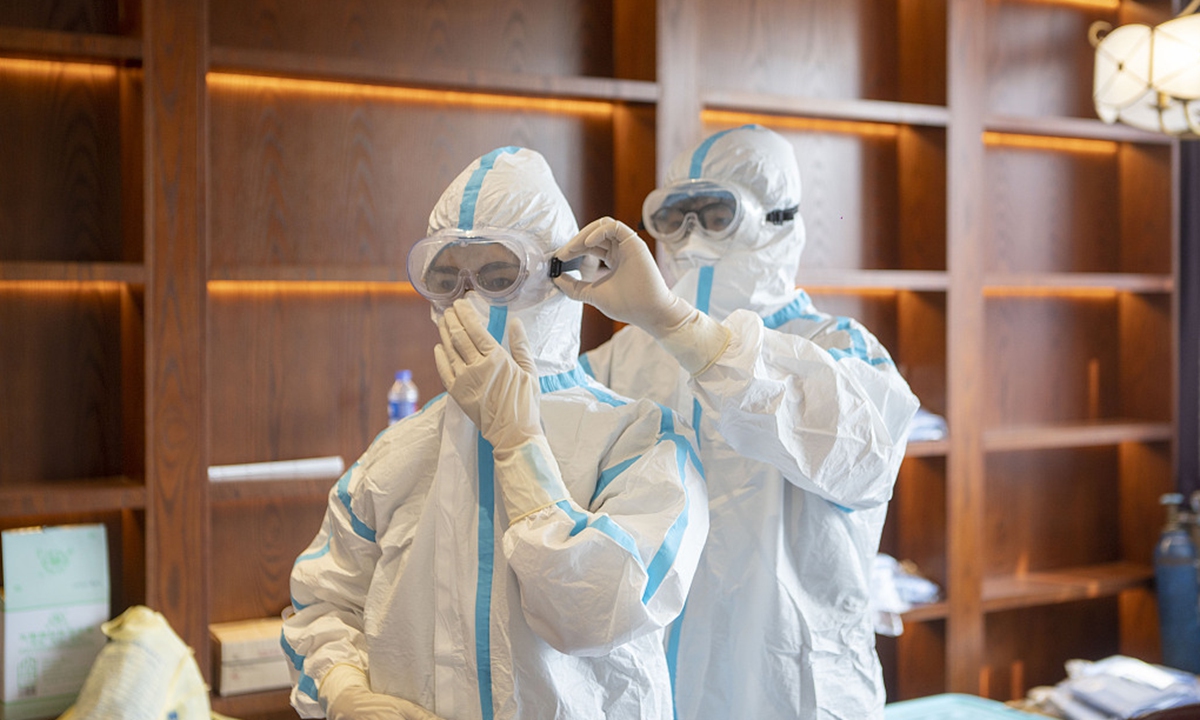Tianjin announces high risk level for community with four local COVID-19 cases
By Chen Shasha Source: Global Times Published: 2020/11/20 9:30:10

Photo:VCG
North China's Tianjin has raised a residential community to "high risk level" for contracting COVID-19, after four local residents tested positive for the virus.
Residents in the community are asked not to leave their homes in a bid to curb infection risks, the local government said on Friday.
Among the four cases reported early Friday morning, three are from a family in Kanhaixuan community, Dongjiang port area.
All of the four people took nucleic acid tests on November 10 and returned negative results, after one asymptomatic case was found in the residential community.
On November 18, they received another round of nucleic acid tests and serum antibody tests that were carried out among residents in the community. Notably, all four returned positive nucleic acid test results but three returned negative serum antibody test results.
Experts explained that it is not contradictory to have such results. "Antibodies appear about one week after infection," Yang Zhanqiu, deputy director of the pathogen biology department at Wuhan University, told the Global Times, noting that this is usually the case in the early stages of infection, especially in the very early stages.
The production of antibodies in the human body, a response to viral infections, may lag behind compared to nucleic acid tests, a Beijing-based immunologist told the Global Times. Therefore, blood samples should be taken multiple times to detect antibodies in a dynamic way, the expert said.
In addition, most of the antigens used in current antibody detection reagents are not real viral proteins but recombinant protein antigens, so their detection efficiency is not 100 percent assured. The expert noted that subsequent reagent optimization research and development needs to be carried out to address this problem.
Dual tests involving nucleic acid and antibodies should be carried out among key groups because neither method can be accurate alone, and a dynamic detection with multiple samples is needed to verify each other, the expert said.
A kindergarten and the Taida Hopstial, which are related to two of the four reported cases, have also been put under closed-off management. Close contacts of the cases have been put under quarantine as well, Tianjin authorities announced.
Posted in: SOCIETY